- |
- |

Are you feeling weighed down by the metaphorical backpack of life?
The one full to the brim with responsibilities and obligations of work, family, health, and friends?
Don’t worry. You’re not alone! And in this month’s edition of Super8, we’re looking at how to achieve a fulfilling, balanced lifestyle. Using Brian Dyson’s metaphor of juggling five balls, we’ll explore the importance of prioritisation, productivity, and taking breaks. We’ll also highlight the fact that while work is resilient like a rubber ball, the other four aspects of life are delicate like glass, and require additional mental effort.
So, if you’re feeling overwhelmed, don’t despair! Our curator, Janine Dickins, has put together a list of articles that will help you reduce your cognitive load, combat burnout, and achieve your full potential.
1. Why cognitive load could be the most important employee experience metric in the next 10 years.

- Read the full article here.
- Created by: Joseph Freed.
- Contributed by: Jonathan Rivett.
Let’s start with a question: are you feeling overwhelmed by all the information you have to process at work? An answer of “yes” isn’t out of the ordinary. Cognitive overload, or exceeding the amount of mental processing power required to perform a task, is becoming a real issue in the workplace. If you’re hitting your maximum cognitive load at work, how are you experiencing life after hours, or on weekends? Read this article by Joseph Freed and get ahead of the problem by developing ways to measure the phenomenon.
2. The elephant in the relationship.
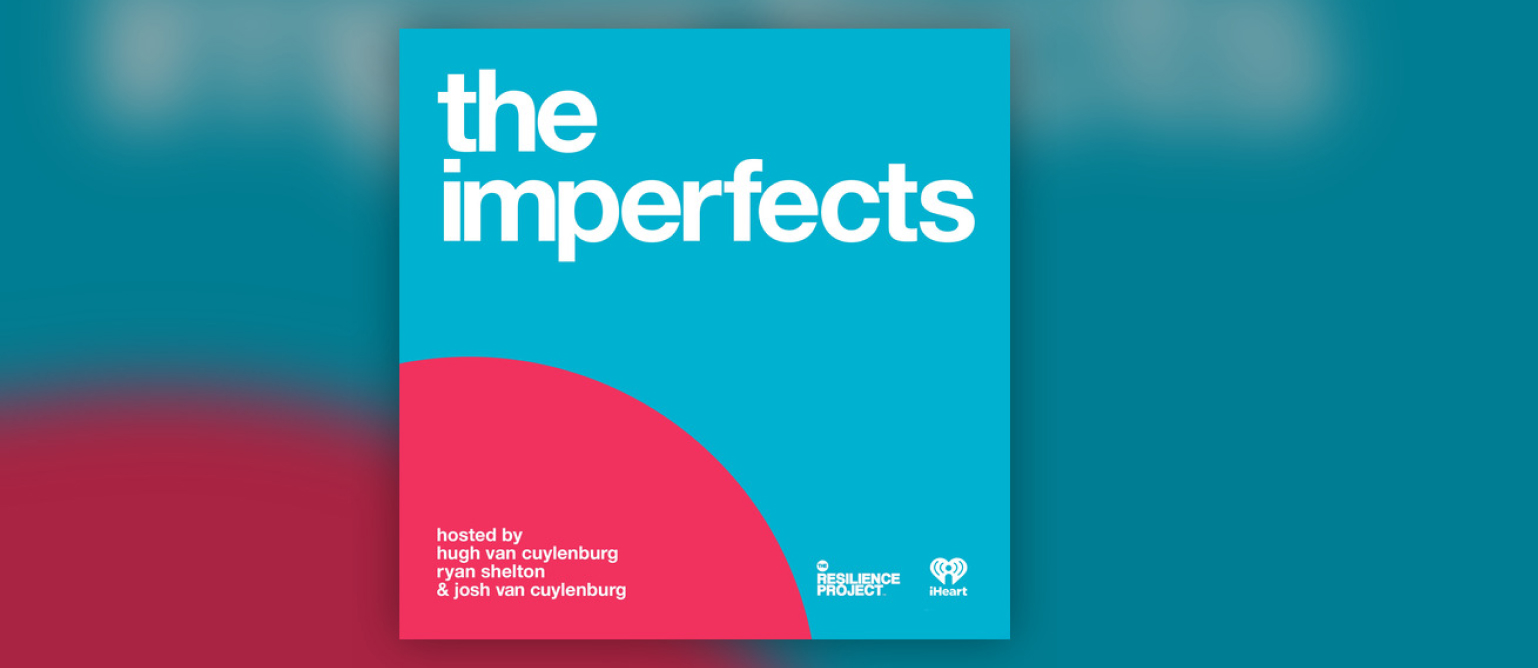
- Listen to the full podcast episode here.
- Created by: The Imperfects.
- Contributed by: Tim Copland.
Juggling the often-invisible labour of running a household on top of work commitments can very quickly become too much to handle. In this podcast episode, married couple Hugh and Penny talk about their real issues. They talk ‘Bluey’, dividing up household tasks fairly, and the fact that, if we’re really honest with the numbers, breastfeeding is very close to a full-time job. If you or your housemate are struggling with the issue of mental overload, this episode is for you.
3. How to stay engaged at work (without burning out).
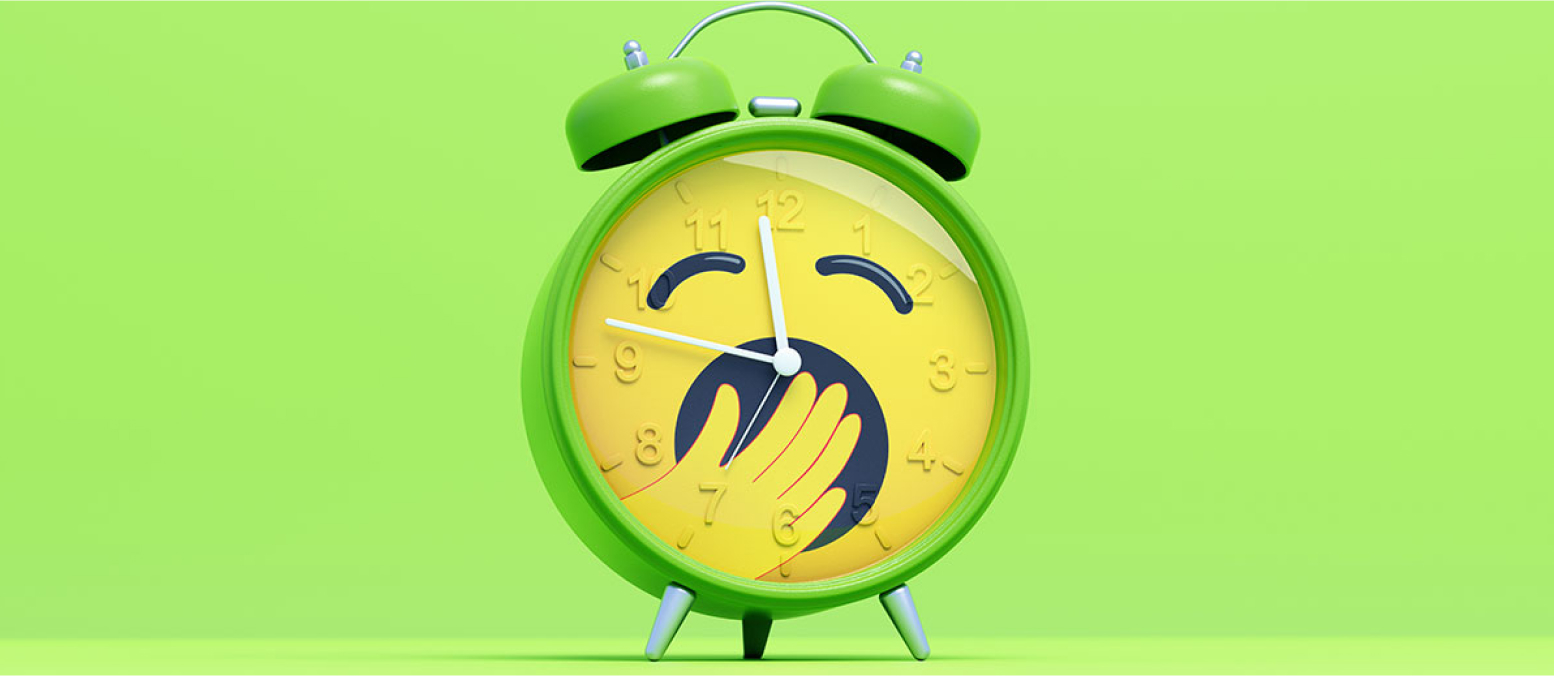
- Read the full article here.
- Created by: Tracey Wik.
- Contributed by: Jeremy Prichard.
It can often be difficult to stay engaged at work when you’re dealing with all sorts of complex problems, worries, and challenges. Burnout can sneak up on you. And it seems it’s more prevalent in younger people. Research shows that professionals under 35 are the most disengaged in the workforce, and that some feel little connection to their colleagues. Can you relate? Well, continue reading this article by Tracey Wik to uncover three strategies that you can use to regain a sense of control over your career and stay engaged without coming to the end of your tether.
4. 10 time management tips that I genuinely use every day.
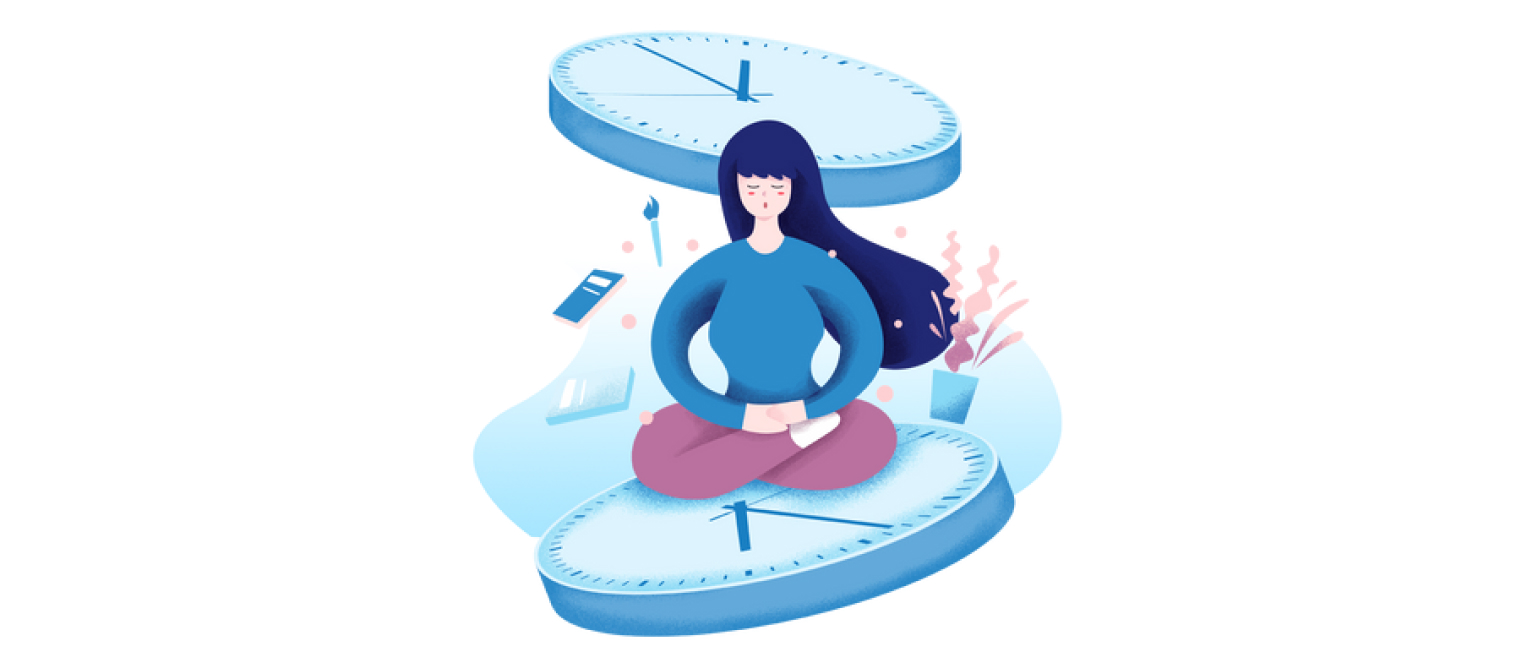
- Read the full article here.
- Created by: Ali Abdaal.
- Contributed by: Matt Agar.
OK, so we’ve talked about how to reduce burnout in the workplace. But what about in general? Time is one of our most scarce resources, and it can be difficult to achieve everything you need (and want) to do in 24 hours. In this article, Ali Abdaal shares his best time management tips to help us live every day to the fullest. Oh, and as for the days where we don’t quite get through everything? Sometimes, Ali says, stressing about unfinished work isn’t worth it when you can choose to be satisfied with the stuff that you have Read on to discover more!
5. Design principles for reducing cognitive load.

- Read the full article here.
- Created by: Jon Yablonski.
- Contributed by: Bridget Noonan.
So far in Super8, we’ve learnt about techniques to reduce our own cognitive load. But what about reducing the mental effort required to interact with the content you produce as a designer? The less people have to think about what they need to do to achieve their goal, the more likely they are to reach the ‘finish line’. And although some level of cognitive load is unavoidable, designers should still strive to accommodate the limits of their audience members’ minds. Whether you’re a designer, or just a dedicated citizen of the digital realm, you’re sure to get something out of this article by Jon Yablonski.
6. What is cognitive overload in UX? 3 tips to minimize it in your designs.
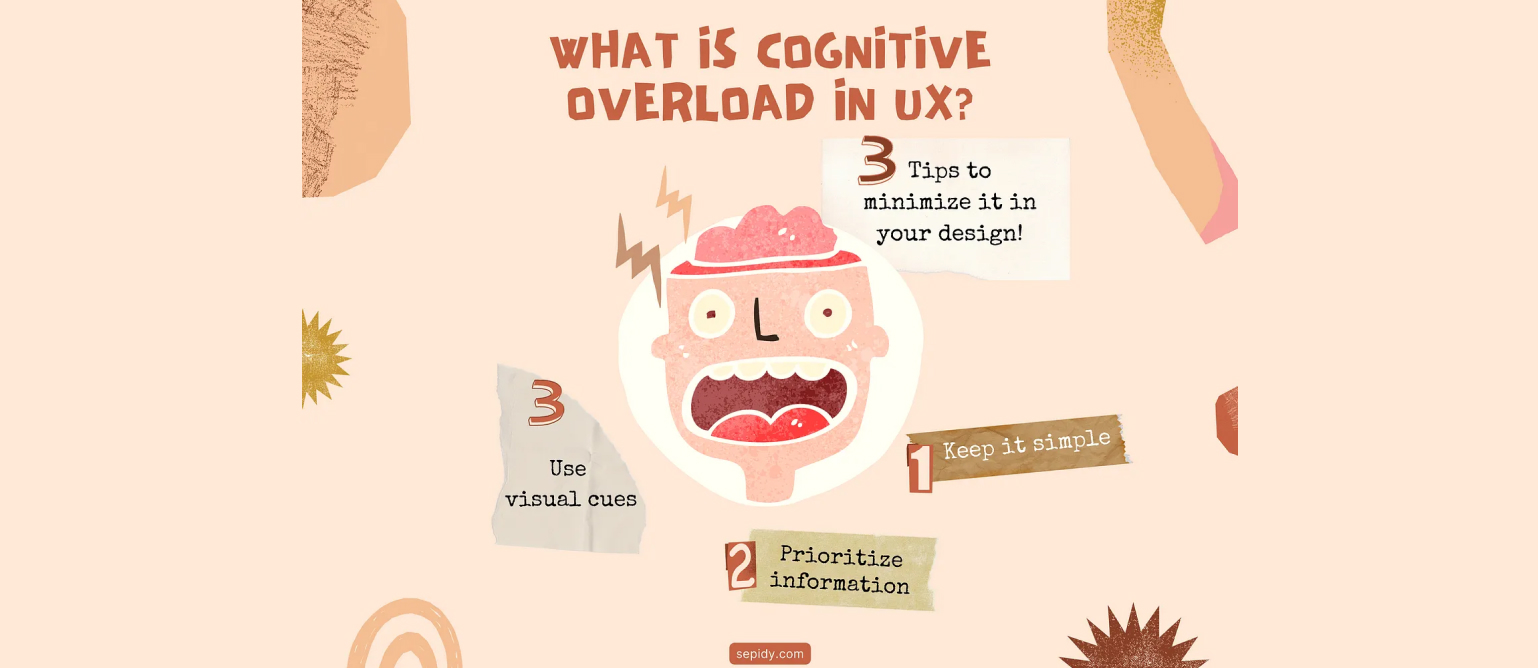
- Read the full article here.
- Created by: Sepideh Yazdi.
- Contributed by: Emily Mahady.
In addition to the many negative outcomes we’ve already discussed, cognitive overload also has significant implications for decision-making. Delve into what happens when our brain is given too much information and discover three useful strategies that can decrease your stress and improve the enjoyability of your designs. In this article by Sepideh Yazdi, you can unpack the importance of simplifying information to avoid leading your community into ‘analysis paralysis’ or even ‘buyer’s remorse’.
7. How to make the most of your workday.
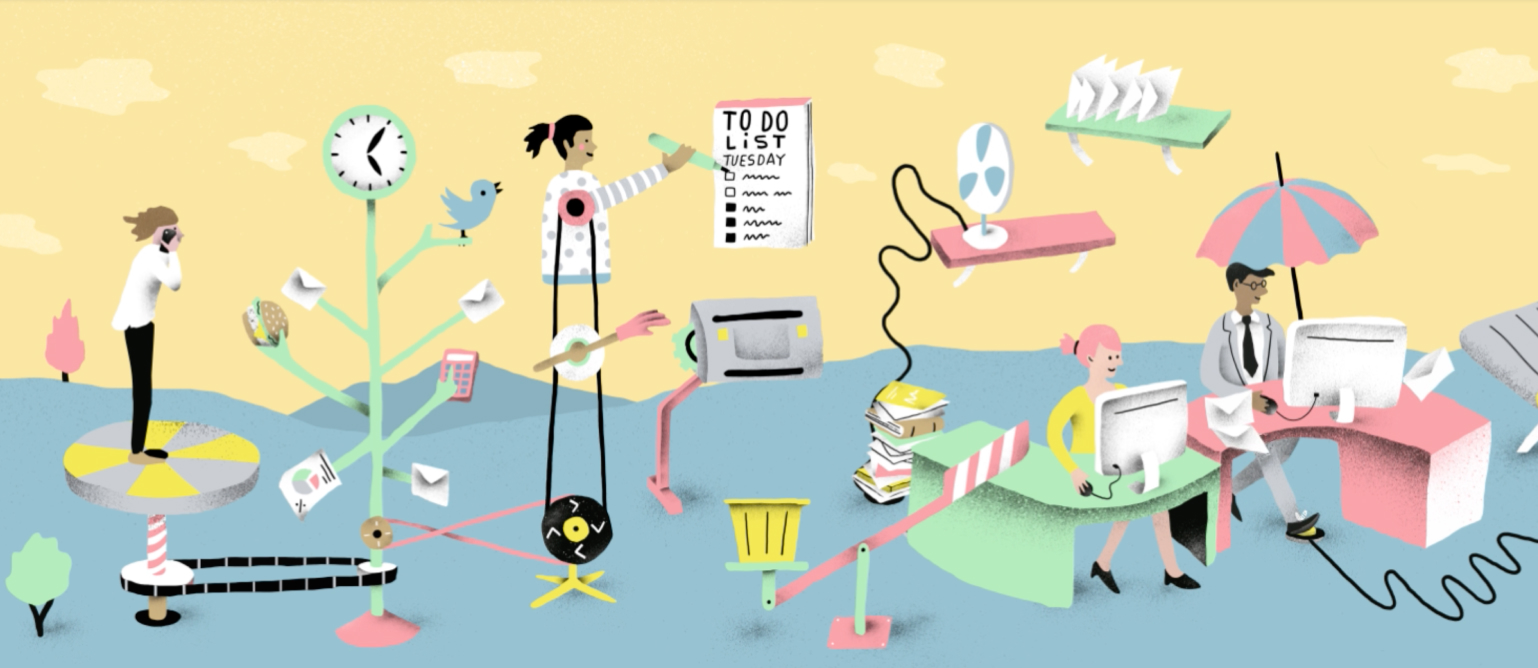
- Read the full article here.
- Created by: Phyllis Korkki.
- Contributed by: Isabel Silvis.
If you’ve made it this far and are still not convinced that the previous strategies will help you achieve your full potential, we refuse to give up! It’s almost accepted wisdom that people who are good at multitasking get more done within their day. But this isn’t necessarily true. In this article, Phyllis Korkki debunks this and other myths that may be slowing you down. She also highlights three basic techniques of productivity that you can adapt to your own personality and working style. Read on and get more time back in your day!
8. How to boost your team’s productivity.

- Read the full article here.
- Created by: Rebecca Knight.
- Contributed by: Nina Wan.
In many industries, overseeing collective workloads when working collaboratively across teams can be a really significant challenge. As a leader of a team or organisation, there can be added pressure to keep everyone aligned. How do you keep people from taking on too much and burning out, or continuously spinning their wheels? Find out in this piece by Rebecca Knight and leave with some key tips on how to boost your team’s overall productivity.
More Articles
Up for some more?
Get your monthly fix of August happenings and our curated Super8 delivered straight to your inbox.
Thanks for signing up.
Stay tuned, the next one isn't far away.
Return to the blog.
